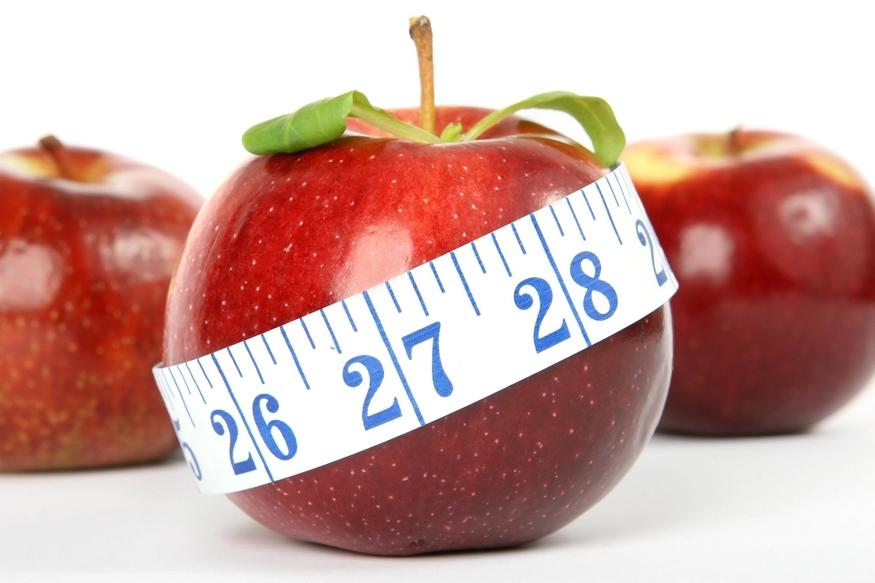Please Don’t Put Calories on Menus
Published on 8/2/2020
Boris Johnson has announced that his government plans to introduce a new legislation regarding calories counts on menus. It will force all restaurants and cafes with over 250 employees to add a calorie count to their menu, and they have not ruled out extending this policy to independent restaurants in the future. This was first mentioned in 2018, so is not a COVID related decision, but is now going to be addressed again. According to a House of Commons briefing paper, this would impact 8,000 businesses at the moment.
Why add calorie counts?
In the briefing paper it stated that this legislation is designed to promote an “informed decision”, believing that individuals will tailor their order to the calorie count provided. Diners will have greater transparency in what they are eating through the numerical measurement of calories, even though it excludes nutritional composition. It is ultimately aimed to “fight obesity”, starting with targeting fast food chains, as they are the ones to have so many employees.
In the US, this is already a common practice. Even within the UK, some large restaurants and pub groups, such as McDonalds and JD Wetherspoon, already have such a calorie count on their menu.
To summarise, the UK government wishes to add a calorie count to menus so that individuals will make an informed decision regarding their meal, and by that a healthier choice. And that this practice will reduce the rising obesity rates in the UK.
Does adding calorie counts actually work?
Given that this is more commonly done in the US, we already have numbers regarding the success of calorie counts on menus. Studies have found that it has minimal to negligible impact on public health. A study by Harvard University showed that people ate about 23 calories less per meal due to visible calorie counts. This would result in approximately one pound of weight loss over three years… not exactly enough to tackle obesity.
Why is this?
1. The people looking at a calorie count and changing their meal based on it are not often the intended target of this campaign. If you will edit your meal choice based on the calorie count, you most likely keep an eye on your nutrition and health generally, and have a lower chance of being obese.
2. A calorie is not indicative of health. A fresh fruit smoothie can easily have over 200 calories, while a coca cola has 140 calories. Seeing that, and then going for the coca cola is not the healthier choice. It will not reduce your weight. Calories don’t tell the full story.
3. The majority of individuals don’t understand how their calorie intake should work. Many of us know that a person should have about 2,000 per day. But that is a rough estimate. The true amount is subjective to your body composition, metabolism, daily movements and hours of sleep. So you may praise yourself for making a healthy choice, when you’re wrongly assuming the right calorie intake.
4. This mainly affects fast food restaurants, where there are very limited healthier options. The range of calorie options on the menu won’t give you the option to eat healthier. Even a salad at McDonalds is soaked in sugar dressing and croutons. We can’t expect consumers to utilise the calorie information and change their eating habit if they have no access to a more nutritious choice.
5. A pat on the back. This works two-fold. Firstly, an individual will go for a lower calorie option, even if it is the unhealthier choice (perhaps due to portion size) and then think that they’ve done enough to be healthy. They won’t check their nutrition or exercise more often. Secondly, the government thinks they’ve done enough. They’re efforts go into placing the blame elsewhere and responsibility on individuals, without educating those individuals, without making changes to the system that has led to such obesity.
But not only do calorie counts not help the health of the population, they will vastly reduce the mental health and with it physical health of a large portion of individuals. Let's look at the danger of placing these calorie counts on menus.
The danger of calorie counts
The UK eating disorder recovery charity BEAT spoke on the matter when it was first proposed in 2019, claiming that “evidence shows that calorie labelling exacerbates eating disorders of all kinds”. They believe that treating nutrition and health as a maths problem is an extremely reductive approach. For “reducing people’s weight to a matter of individual choice and ignoring the many complex factors involved” continues to be a hallmark of obesity policies in the UK and elsewhere. When will this be addressed correctly?
Calorie counting is often the cornerstone of an eating disorder. An individual may begin with the purest of intentions, hoping to get fit or lose a few pounds. But calorie counting apps allow this to morph into an obsession, when numbers proceed happiness and fullness. I spent years logging every single morsel of food that I ate and not only was I miserable, but I was so unhealthy. I could barely focus and drag myself through the day. My hair was thin and breaking off, my skin was reacting, my nails were like paper. I was focusing solely on my calorie count and making it as small as possible, but I was not healthy, I was the furthest from it. I went vegetarian in recovery, and I began focusing on the nutrients that I put into my body. I can have a pizza one night or some popcorn at the cinema, but every single day I eat fruits and vegetables. I don’t count calories, I count my fruit and vegetable intake in a day. I look at my protein source and my healthy fats, I enjoy carbohydrates again. I am the healthiest I have been. I workout less than I did, but when I do I feel energised from it and not exhausted. I am the largest size I’ve been, but a recent blood test showed that I have all the vitamins that I need. I have energy, motivation and even happiness.
We need to stop teaching children that calories are health. Calories are a meaningless number used to control us. We need to focus on vitamins and nutrients, on making healthy food delicious and no longer casting unhealthy food as the enemy. We need people to want to be healthy. We need to separate health from size. I know skinny girls, ones that could step right onto a magazine cover, who smoke and eat junk food and barely workout. Why is that our ideal? Why is that preferable to someone curvier who eats and exercises right? Calorie count keeps the conversation on size instead of health.
Eating out when you have an eating disorder or are still recovering from one, is already so difficult. I would be brought to tears by the stress of it. You lose the control of your meal and what you put into your body, you feel watched as you eat and terrified of the full plate before you. Why do you want to make that more difficult by adding a row of insignificant numbers down the side of the page? By doing this you are heightening their struggle, isolating people with an eating disorder until they are unable to eat out and miss that socialisation practice. Even when you stop your disordered eating practices, you still have that guilt within you, and this practice will feed on that.
Alternatives to tackle obesity
It has been shown that anti-obesity campaigns that focus on weight instead of health are counter-productive. Instead of highlighting the aged method of counting calories, why don’t we promote the health of different food options? Instead of adding a calorie count on a menu, why not add the amount of protein in a dish? Protein fuels people and can fill them better than a low-protein dish. Show the vitamins or ingredients.
If the target is childhood obesity, why not bring the issue to schools, where children can learn the most? There was great success with the Jamie Oliver school lunch program, which had the motto “Eat better. Do better”. Let's ensure that all children can receive a healthy school lunch, as they will learn from this and take that knowledge home with them. Let’s teach children about healthier options, how to include more fruit and vegetables in your diet. In many homes parents can’t always cook for their children due to work schedules or other responsibilities. So why don’t we dedicate an hour a week to teaching children how to make a basic healthy meal? Then they don’t have to rely on frozen ready meals or takeout, they become independent in their healthy choices.
Alternatively if the government wants to tackle fast food, why not increase the taxes on unhealthy food products. Tax sugar-sweetened beverages and lower any taxes on healthier food options. In Mexico and Berkley, they found that taxes on sugar-sweetened beverages reduced the purchase of them. Low income households struggle to buy enough fruit and vegetables, and end up choosing fast food to fill the family’s stomachs. Make healthier food affordable for any household, and let eating right begin at home.
Regulate the way that food corporations can advertise. In some countries, you cannot advertise fast food on television and you can’t give toys away with fast food. They work to protect children from false information and temptation. Implement more rules on what they can actually healthy, or how they can target children. Make every fast food chain have a certain number of healthier dishes, perhaps through vegetarian or vegan options.

I often shy away from discussing current events. The imposter syndrome creeps in. Why does my opinion matter enough to share? What do I even know? Well, this time is different, this time I can’t help but speak out. My opinion matters on the subject because I have suffered through an eating disorder and I know that I am far from the only one. I know that this plan by Boris Johnson has drastic consequences and is not the way forward. I also bet that in posing it, they didn’t consult with any experts on eating disorders or mental illness. When you make country wide changes regarding health and food in particular, you need to consider eating disorders in them. They affect between 1.25 and 3.4 million people in the UK, they matter in this equation.
Don’t make them sacrifice their mental health, when you could be sacrificing your budget and efforts instead.
Featured posts

Fleur
Welcome to Symptoms of Living! A place where I like to relieve myself of the barrage of thoughts and ideas filling my mind. Here I'll take a look at various topics, from books to BPD, series to self-harm, there's nothing that we can't, and shouldn't, talk about.
Having struggled with mental illness since the age of 15, one of the hardest parts was how alone I felt in it. While mental illness is beginning to be discussed more openly, and featured in the media, I still think there is room for improvement. So whether it is mental illness or merely mental health, a bad day or a bad year, let's make this a place to approach it and strip it back. Everyone has their own symptoms of living, and you certainly won't be the only one with it.
Would you like to receive my top monthly articles right to your inbox?
For any comments/questions/enquiries, please get in touch at:
info@byfleurine.com
I'd love to hear from you!